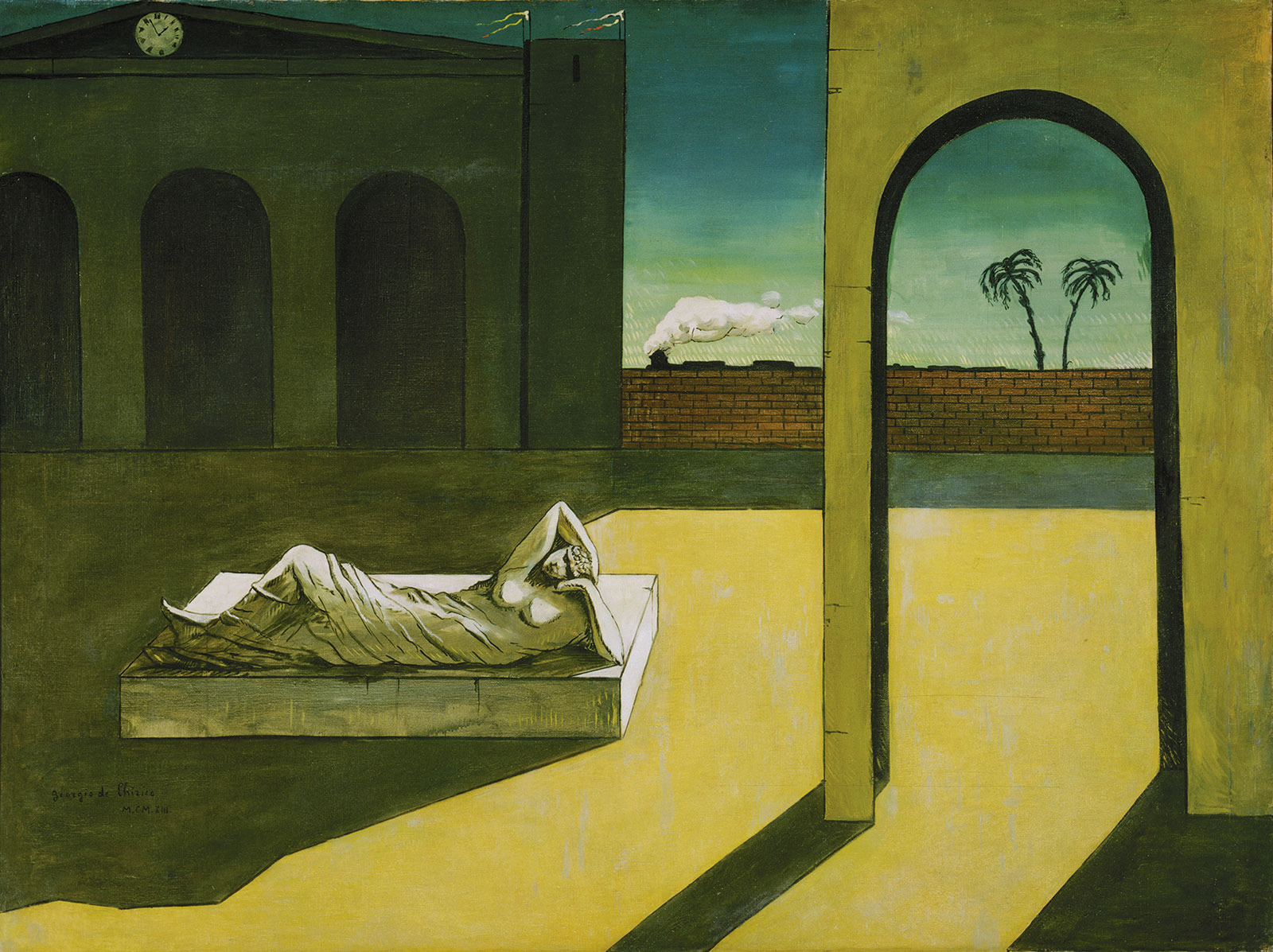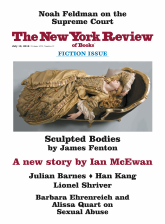You ask how was it for me. To answer I must go back some fifty years to a warm Friday midnight and the moment when I whispered with utmost delicacy into the ear of my new friend the indelicate question. I was lying beneath her and she was in all her glory, naked but for a studded choker of lapis lazuli and gold. Even in the amber light of a bedside lamp, her skin gleamed white. Her eyes were closed as she swayed above me, her lips, minimally parted, allowed a glint of beautiful teeth. Her right hand rested lovingly on my left shoulder. She smelled faintly, not of perfume but of sandalwood soap. Those bars, imprinted with an ancient sailing ship and folded in tissue within a long rectangular box of balsa, were once mine. She had taken to them the moment she first entered my bathroom. Why should I mind?
As we came to a lull in our lovemaking and she leaned forward, I put my lips close to her ear lobe and licking it, speaking into a headwind of sensual pleasure that seemed to snatch the words from my mouth, said, “Dearest, I know I shouldn’t, but I have to ask you this. I don’t claim any right to know, of course, but after these two wonderful weeks…I feel…darling, Jenny…forgive me, I love you and always will…but please tell me the truth. Are you real?”
Before I describe her reaction, I should explain for the benefit of younger readers how things stood at that particular moment. We’d been through a social revolution whose outcomes now are entirely taken for granted. The young, I’ve noticed, tend to act as though nothing has happened. They have little or no sense of history. The miracles worked by previous generations—they’re as ordinary as life itself. But as everyone who takes an interest should know, the entire debate began innumerable centuries before, with Plato perhaps, or with Mary Shelley’s Frankenstein, or with Charles Babbage and Ada Lovelace, or the speculations of Alan Turing, or when, at the dawn of the third millennium, a computer program, learning from its own mistakes by way of deep neural networks and “self-play,” defeated a Grandmaster at the ancient Chinese game of Go. Or, most significantly, when the first android became pregnant by a human and the first viable carbon-silicon baby was born. Only three streets away from my apartment, in a delightful little square lined with cafés and shaded by pollarded plane trees, there’s a statue in Molly’s honor. You would think that there was nothing unusual in such a monument. Except that a pretty girl of eight in T-shirt and jeans, hands on hips, stands boldly before us on a plinth in place of a general, or a poet or an astronaut.
Could a machine be conscious? Or put another way, were humans merely biological machines? The affirmative answers to both questions consumed many decades of international wrangling between neuroscientists, bishops, philosophers, politicians, and the general public. Finally, long after it was due, artificial people were granted full protection under various human rights conventions. So too were their mixed-source offspring. Other rights properly followed, including benefit of marriage, property ownership, of passports, voting, and employment protection. An android could start a business, get rich, be bankrupted, sued, and murdered as opposed to destroyed. Around the world there developed various “autonomy acts” which made it illegal to buy or own a manufactured person. The legal language self-consciously invoked the anti-slavery acts of the nineteenth century. With rights came responsibilities—military service was an uncontroversial, irresistible matter. On jury service, androids were a useful addition, given all the cognitive defects and weak, pliable memory of humans.
Ours was the generation that came of age in the aftermath—turbulent years of passion and anguished reflection. What it meant to be human was being interestingly, or tragically, extended. If the consensus of the scientific elites was that our newly devised friends felt pain and joy and remorse, how could we prove it? We had been asking the same question about other humans since the dawn of philosophical reflection. Should we be troubled or delighted that they were, on the whole, cleverer, kinder, more beautiful than we were? Were the religious among us wrong to refuse to grant them souls?
Then, as so often happens with contested social change, once these matters were talked out and the legislation approved, life moved on and soon no one could remember what all the fuss had been about. It’s often said that the great questions of philosophy are never resolved: they fade away. All those protest marches, monographs, speeches, conferences, and dire predictions were for nothing. After all, our new friends seemed much like us, only more likable. You could trust them, which is why so many went into law, banking, and politics and began much-needed reasonable reform of those institutions. Their natures were deeply caring, and many became doctors and nurses. They were strong and fast and made up two thirds of our Olympic track and field team, though sprint hurdling took another fifteen years to perfect. Famously, they showed themselves brilliant musicians and composers in all forms of music. If ever we worried that they seemed a little too good at everything, we could congratulate ourselves that they were our creation, in our image, the final full flowering of our artistic and technical genius. They were, we often said, the better angels of our nature.
Advertisement
By slow steps, though much remarked on, and affecting social life as well as legal process, it came to be understood and generally accepted that our crafted con-specifics deserved full dignity, and respect for their privacy. That’s to say, in a matter of years it became socially unacceptable—as was not the case in our youth—to ask.
For example, at a gala dinner for a major book prize, you could not inquire of your charming neighbor at table, prompted by a rather too astute remark of his, if he, a highly respected publisher, was a biosilicate-based, locally manufactured artifact. Twenty years before, you could have—indeed, it would have been the first thing you wanted to know. It would have been no more than a casual preliminary. Just as if you had said, I hear you have a second home in Thuringia. So do I! With all the last mutinous mutterings about political correctness fading away, along with the stupid old “they live among us” scare stories, it became offensive, even prurient to ask, since your inquiry would be, in essence, grossly physical, given that the matter of ascribing consciousness had long been settled. It would be no less intrusive than asking of a human over the chocolate mousse, Is it really true? Everyone’s saying you’ve had a colostomy!
Another example. When Mrs. Tabitha Rapting became prime minister with a parliamentary majority of two, there were those who wondered if she was “real”—another hurtful word that has been dropped. But the point is this—socially, we had already crossed a great divide, for such wondering was not done in public. Only in golf club bars, or on street protest marches by marginal, radical groups. It would have been indecent, obscene, akin to racism, and therefore probably illegal. That was all long ago, and even now we’re still not sure when an android first became prime minister. Or if one ever has. Or whether we’ve lived under an unbroken succession of them. Nor do we know whether (or if) an android has ever taken the men’s or women’s singles championship at Wimbledon. Or if a human has won it these past twenty years.
So if my question to Jenny that sultry July evening seems despicable to younger readers, let me remind them that I belong to a generation that lived through the transition. As gruesome adolescents with an unforgivable taste for taunting women passersby in shopping malls, we thought we knew a dozen ways to test the difference. We were wrong, of course—not that we would have cared. Beyond DNA analysis or deep micro-surgery, there are no means of knowing. But we knew we could always demand an answer from the victims of our taunts, and the answer was programmed always to be truthful—until that too began to change.
Jenny, I’m proud to remember, did not take offense. She drew closer to me. Her eyes, now open and deep and black, were fixed on mine. She felt—words can barely perform the task—liquid, smooth, warm, enveloping. Sentient and sensual. Oh, such a lovable self. A bolt of love and pleasure threatened to render me deaf. But my curiosity was so strong that I heard every word she said. Moments like these are what we’ll take to the edge of the grave. The kiss we exchanged before she spoke was tender and rapturous. Her lips, her tongue—miracles, however they were formed. I knew, even before I had my answer, that I would never leave her. So why should it matter what she was made of?
“You’re mine.” She said it as a matter of plain fact. She had uttered these words occasionally during our lovemaking and they had always pleased me. “And I belong to you. Everything else is froth.”
Because she paused, I disloyally wondered if these endearments, however sincere, were a form of evasion. But how dared I doubt her?
Advertisement
“I thought you already knew. I was formed in Düsseldorf in Greater France. So were my parents and the aunts you’re so nice to. But the cousin you met in the restaurant, the one you tried to beat at squash, he’s from Taiwan.”
“Düsseldorf!” It was all I could manage, though the final syllable was no more than a swallowing sound, for I believed I was disappearing. Such mighty sensations belonged not to me but to the world of things, to the emptiness between things, to the essence of matter and space. Around those two entities there rose an obliterating tide of ecstasy. Such confirmation of her strange and beautiful otherness thrilled the world that included me to a vanishing point of oblivious singularity. Within seconds I had, in the colorful phrase of my shopping mall adolescence, “cartwheeled over the windmill.” Feebly clutching at my heart, I briefly fainted. How it shamed me to be such a selfish lover—and as I returned to the present moment I told her so. Of course, it was in her nature to forgive.
I was in love and there was no turning back. But now I knew for certain something about her that I would need to bear in mind. Her processing speeds ran at half the speed of light. She could think a million times faster than me. Tact and other considerations would oblige her not to show it. But if we were to live together, I would have to acknowledge that it would be tricky for me to win an argument or counter any decision she made. In the instant it might take me to shrug and look away from her to gather my thoughts, she could have rehearsed in private reflection most of what was known about human nature and the history of civilization.
So, there it is, this is how it was for me. My generation straddled one of the great clefts or rifts in that lengthening mountain range we routinely call the story of modernity. Believe me, if you have never apologized to a machine for posing the indelicate question, then you have no concept of the historical distance that I and my generation have traveled.
This Issue
July 19, 2018
Tipping the Scales
A Work of Art




